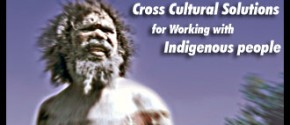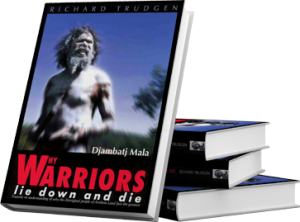We sometimes get the question from people interested in working with people from North East Arnhem Land;
‘Do you know of any good external language courses that are available?’
There are a couple of options to begin learning Yolŋu Matha, the language of north east Arnhem Land.
- A series of distance education courses are available through Charles Darwin University (CDU). If you are in Darwin these can also be studied internally, which is recommended. There are several advantages of these courses. As it is a university course, it is structured around recommended and required study, along with regular assessment, so it keeps you working. The course teaches much about culture as well as language, which makes it much richer and gives good context. The course is run by extremely knowledgable and passionate staff, who share many personal and traditional stories. Many people struggle with the work load, which does require alot of self learning in order to keep up. The early subjects have assessments that are very much based on written work. This means that your time can easily get consumed in writting and reading the language, which is less effective for learning to speak and hear. However, the later subjects are more focused on conversational skills (not sure if these can be done externally). The staff are really helpful and if you put the work in you will get alot out of the course.
- There are a number of self learning courses available through ARDS. I recommend “Gupapuyngu Alphabet & Pronunciation” followed by, or in combination with the “Gupapuyngu Conversational Course” 1&2. (ARDS has also begun to publish an identical course in Djambarrpuŋu a sister language). It is important to understand the alphabet and pronunciation first and try to memorise the sounds, before moving to phrases. But as you get bored with pronunciation practice go to the first of the conversational courses, which have structured lessons and drills on CD for each lesson to test yourself and practice with. The downside to these courses is that you have to be disciplined with yourself to regularly spend time working through the lessons (and repeating them) when there is no one to examine you. If you choose to do the CDU courses the “Alphabet and Pronunciation” book will help, and you should try to work through it before the course starts as there is little time allotted for learning the alphabet and their sounds. The advantage of these self-learning materials is that they focus on speaking and hearing and you will be off to a very good start to begin learning more by practising and conversing with Yolngu people once you do enter Arnhem Land. A Gupupuy’ŋu Grammar book is also available, but you will only need this when you get to the stage of asking, ‘Now, how would I say …..” The gramma book has no audio and is best as a reference once you start to use the language with Yolngu people, or if you find yourself exceeding the expectations of the conversational courses (this book is part of the resources for the second CDU subject).
These options and resources are complementary, so they do work together well to expand your learning options. However, we would not recommend attempting to do both the converstional course and the CDU couses at the same time unless you are devoting all your time to language learning while outside Arnhem Land. It is important to devote time to practice with a native Yolŋu Matha speaker, if possible, even at the early stages of your learning. For example, you could make arrangements to talk by phone with good aquaintences you have made in Arnhem Land.
Good luck. And please leave a comment if you know of other resources or have some useful insights from your experience with learning Yolŋu matha.





Tim Trudgen •
I have recently discovered that the audio for the conversational drills in the Gupapuyngu conversational course are not currently available, as they were taken off sale for mastering to CD, but their where some problems with obtaining the original audio. We are in the process of solving this and I will update you all. In the mean time you might try the Don Williams Introductory course which is also available at ards.com.au.
Philip Tippo Stevens •
I am from North Stradbroke Island,Indigineous I belong to this Island Area. I spent some time in numerous Aboriginal Communities and Know all our Languges have near same words for body parts also words like yes and water, as well as sign langauge. All around Australia our Songlines were once connected I think. I am Interested in your site because in the Early 90’s spent some time in Yolgnu country, and with some Brommett And Yunupingu Families, also Further South Around Nukur With the Roger’s family. I would love to learn Any Languges from your contry. Good Work. cheers.